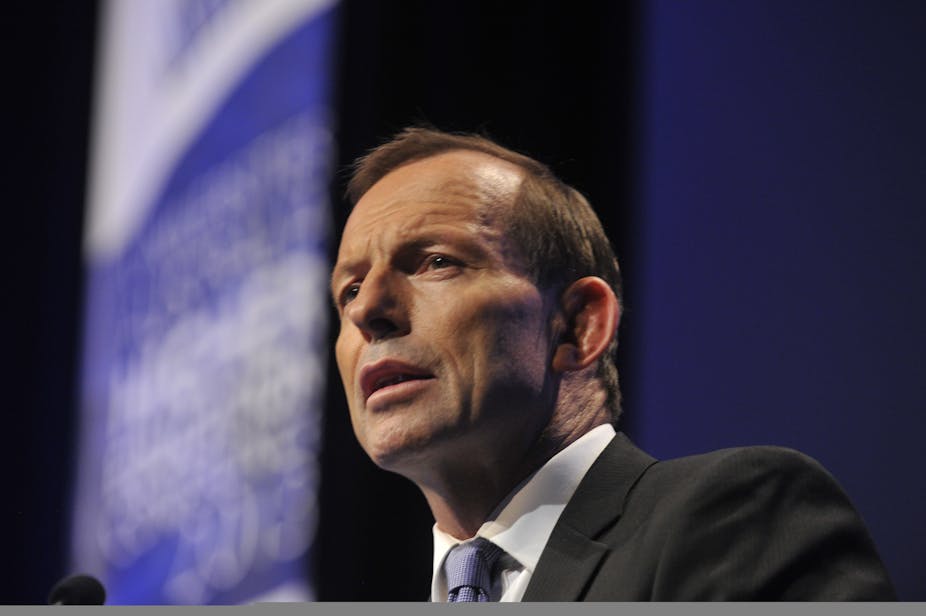Suddenly, everyone seems to be unloading about the state of federal-state relations and the problems of the Council of Australian Governments.
COAG, where the prime minister, premiers and chief ministers meet to try to get big reforms done, currently has a bulging agenda, with a lot of tension around the Gonski schools funding plan before its April meeting. With several Liberal governments in the states and an embattled federal government facing the people this year, the situation is a recipe for fractiousness; Western Australia, Queensland and Victoria are all playing hardball on Gonski.
But the criticisms of how the federation is operating are wider and have also come from within the Gillard government.
Foreign minister Bob Carr, with the credentials of having been a premier, declared that federalism wasn’t working well enough. “You’ve got an untidy mix of responsibilities. You have states with an enormous apparatus of government, having been leached of any responsibility”, leaving an over-supply of state ministers, he said in a Fairfax Media interview.
“Let’s get serious. Let’s strip the COAG agenda right back. Let’s focus on six things in terms of reallocating responsibilities and duties that we can give effect to in the next year. And let’s give the states something meaningful to do”.
Earlier this week Paul McClintock, former chairman of the COAG Reform Council (the official watchdog that monitors COAG’s performance) said the Gonski plan was a bridge too far and the Gillard government should instead concentrate on pursuing with the states areas, such as disability, where there was more agreement.
“If you have a federation of sovereign states, trying to run it by sending down missives from Canberra is a really bad way to run a nation”, he told the Australian Financial Review. “The whole federal space is as confused as it has ever been. There is real doubt about what is going to happen”.
McClintock’s successor, John Brumby, who has just taken over, was more sanguine when he met Canberra journalists yesterday (and, as the incumbent, more discreet). Vigorous debate was not unusual when really big reforms were being considered, he pointed out, recalling previous battles over competition policy and the like. (Brumby himself, when he was Victorian premier, had a massive stoush with Kevin Rudd.)
Brumby said that generally the nation had come out of these debates with better policy than before. Yes, the COAG agenda was a busy one, and maybe there was a need to set priorities better – but things filtered up because “COAG is a place where you can get things done”.
He didn’t believe a political mix of governments meant leaders couldn’t work together - although he conceded that generally “election years make it a more difficult environment”.
Two elections ago then opposition leader Rudd pledged to end the Commonwealth-state “blame game”. In those days the electoral map was wall-to-wall Labor; even so, it was always going to be an unrealistic promise when questions of money and who has power were involved.
In his general spray, McClintock said that “one of the most important things people should be asking at the next election … is how do you intend to run your side of the federal bargain?”
This is indeed a very relevant question for opposition leader Tony Abbott, who has not said much about the subject recently.
Abbott, who unsuccessfully urged John Howard to take responsibility for the nation’s hospitals, spelled out his views on federalism in Battlelines, written shortly before he became leader (and influenced by the coalition’s experiences with Labor states). His sentiments and suggestions in that book are enough to make the hair of any self-respecting premier stand on end.
“Calls for a more constructive relationship between the different levels of government or for leaders to put the country above their sectional or political interests ignore the constitutional facts [of divided power] and take for granted a level of magnanimity that politicians don’t normally have”, Abbott wrote. “If, as Australians seem to want, the national government is to resolve problems that the states can’t handle, there will have to be constitutional change”.
He suggested a change giving the Commonwealth power to make laws in all areas, rather than just those listed in the constitution. This would render the national government supreme because under the constitution federal laws override state laws in areas of shared power.
In case anyone might think this was just a passing thought bubble, in an appendix Abbott helpfully set out a draft bill to amend the constitution.
But, his office explains, that was then. In his recently-released Our Plan: Real Solutions for all Australians, the tone is very different. Nothing about constitutional change. All about “working in close co-operation with the State and Territory governments who are largely responsible for the delivery of government services.”
COAG would be reformed so it was not used as a “parking lot for tough decisions which are sidelined by political grandstanding”. “We will focus COAG on a smaller number of core issues and ensure they are resolved quickly”.
Abbott has had some big conversions over the years, for example his coming round to generous paid parental leave. As leader, he has decided to bury his view that the states are next to useless and their power should be formally contained. But (like Howard before him) Abbott is by inclination more of a centralist than a federalist. In the short term, the conservative states might welcome an Abbott prime ministership, but they would be unwise to believe they had a natural ally in him. Battlelines reflects his philosophy; Our Plan his pragmatic policy.

